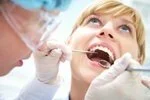Nexium users should consider biologically based care for dental erosion from GERD
People with gastroesophageal reflux disease (GERD) often take Nexium to combat their heartburn and acid reflux symptoms.
People with gastroesophageal reflux disease (GERD) often take Nexium to combat their heartburn and acid reflux symptoms. GERD is a digestive disease whereby the esophageal sphincter - a muscle at the bottom of the esophagus that allows food to pass into the stomach - weakens or relaxes and cause stomach acid and sometimes bile to flow back up the esophagus. GERD can be caused by many things, including lifestyle choices like smoking and alcohol use, eating highly acid, minty or fatty foods, certain medications and autoimmune conditions like scleroderma. People with GERD often have heartburn, burning or the feeling of a lump in the throat, acid reflux, difficulty swallowing, chest pain and dry cough. These symptoms can range from mild to severe. Nexium is a proton pump inhibitor (PPI) that can help treat GERD by reducing acid in the stomach, giving the esophagus a chance to heal. Dental erosion from GERD After dental examinations and endoscopy by a gastroenterologist, 22 percent of those with GERD had dental erosion, while only 7 percent of healthy subjects were found to have erosion. Biologically based approaches to dental erosion Traditionally, dentists treat erosion from GERD by using porcelain and bridges, which often requires removing much of the tooth. When these artificial structures are damaged, they require a significant amount of work to repair. Researchers suggest using resin composite to fix dental erosion - it is biologically sound because it leaves much of the remaining tooth intact and chips are easier to fix. After talking with patients, the researchers found that patients prefer biologically based resin composite. |
Toll-Free Tel : 1-877-278-5387
Toll-Free Fax: 1-877-278-5359
Toll-Free Fax: 1-877-703-3038
Toll-Free Fax: 1-877-703-3038




